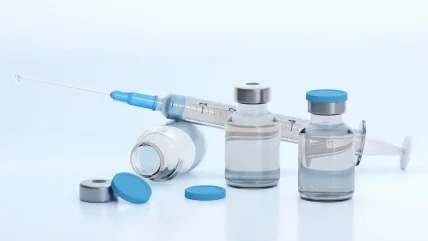
BioMarin Pharmaceutical has received the US Food and Drug Administration (FDA) approval for Brineura (cerliponase alfa) to treat a rare type of genetic disorder in children and adults.
Brineura is an enzyme replacement therapy indicated to treat children with neuronal ceroid lipofuscinosis type 2 (CLN2 disease), also known as Batten disease.
It is a recombinant form of human tripeptidyl peptidase 1 (TPP1), the enzyme which is deficient in children suffering from CLN2 disease.
The enzyme replacement therapy is designed to restore TPP1 enzyme activity and break down the storage materials that cause CLN2 disease.
Brineura was initially approved by the US FDA in 2017, for the treatment of late infantile CLN2 disease in symptomatic children 3 years of age and older.
The FDA’s current approval expands its indication to include children of all ages with CLN2 disease, not considering whether they are symptomatic or presymptomatic.
BioMarin worldwide research and development president Hank Fuchs said: “Today’s approval represents a significant step forward in enabling children to be treated with Brineura as early as possible when we can have the greatest impact in altering the natural course of disease.
“We know that every day counts for families affected by serious genetic conditions such as CLN2 disease, which is characterised by a rapid onset of neurodegenerative symptoms.
“We have been working diligently since BRINEURA’s initial approval to support this expanded use in children of all ages, even before they begin to show symptoms.”
The US health regulator approved BioMarin’s supplemental Biologics License Application (sBLA), based on data from Study 190-203, a Phase 2, open-label, multi-centre clinical trial.
The Phase 2 study evaluated treatment with Brineura for nearly three years in children aged 1-6 years at baseline, including eight children less than three years of age.
In the study, the treatment slowed the decline in motor function and delayed disease onset in children with CLN2 disease, including those who were aged below three years.
Brineura showed a safety profile that was well-characterised and its safety results in children aged below three years were similar to the known safety profile of the drug.
The study results confirmed that the treatment initiated after three years of age significantly slows the progression of CLN2 disease.
Also, it is the first data to show that early treatment initiation before three years of age may result in delaying disease onset, said the pharmaceutical company.
Batten Disease Support, Research, & Advocacy (BDSRA) Foundation Research and Medical Affairs head Ineka Whiteman said: “Receiving a CLN2 diagnosis is devastating for families as the disease is life-limiting and can severely impact a child’s daily functioning and quality of life from a very young age, with symptoms including seizures, speech and language deficits, impaired movement and vision loss.
“The opportunity to start Brineura treatment earlier, even before the onset of symptoms, provides newfound hope for the families impacted by this rapidly progressive disease.
“Importantly, this expanded indication provides further impetus for early diagnosis of CLN2 disease, as we continue advocating for the inclusion of CLN2 disease on the RUSP (Recommended Uniform Screening Panel) for newborn screening.”






